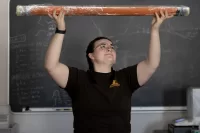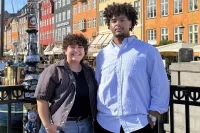
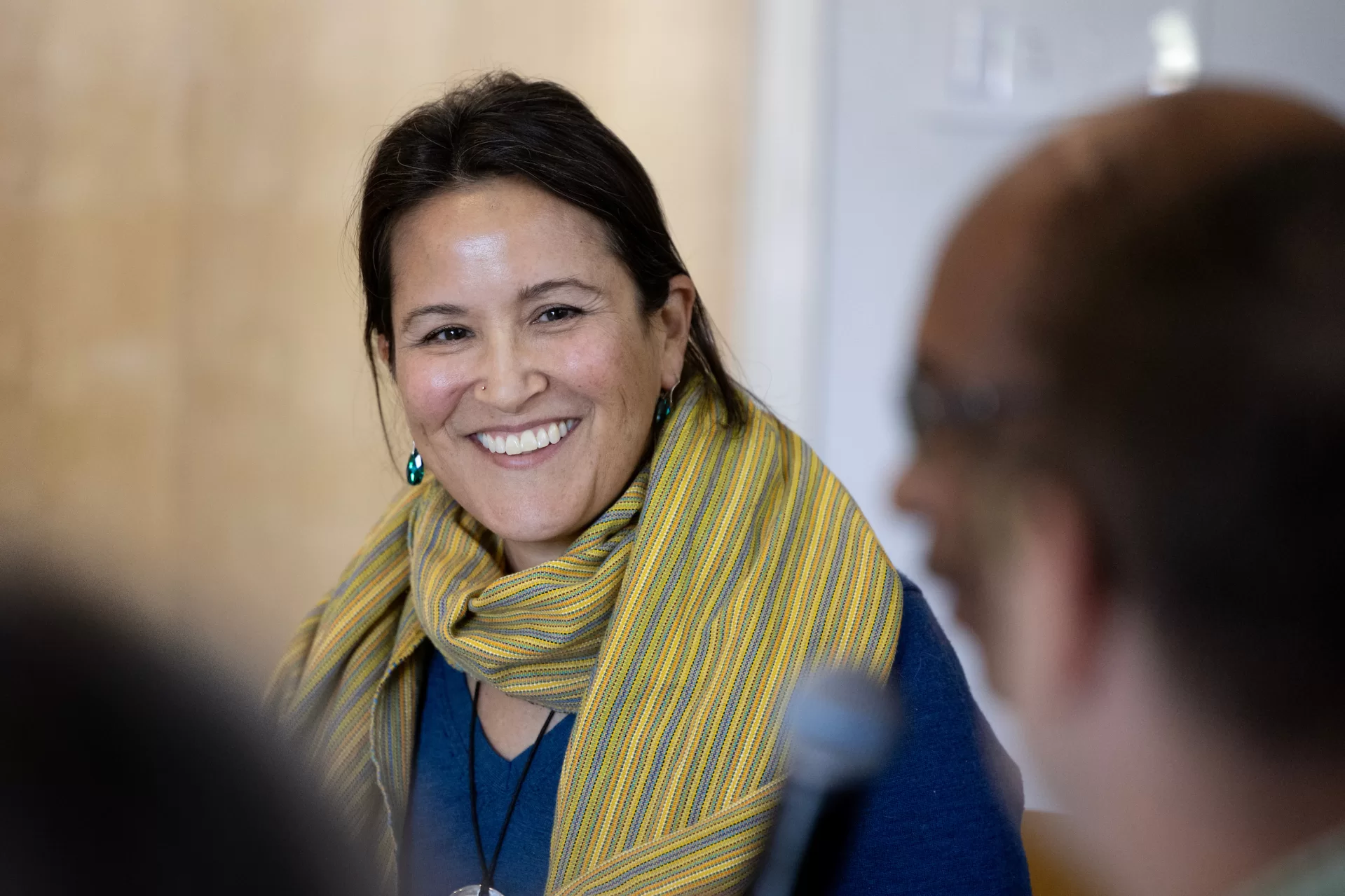
Before she joined the U.S. Foreign Service, Clarisa Pérez-Armendáriz, professor of politics, was certain that she would never make a career out of studying Latin America.
Her family is from Mexico — she was born in Monterrey before moving to the U.S. at age 2 — and she felt that studying the region would give in to people’s stereotypes about what was expected of her.
But, when she was assigned to Mexico for her first post as a Foreign Service officer, everything changed.
“I was really upset,” Pérez-Armendáriz says. “But then, it turned out it’s the most incredible thing that happened in my life.”
Her experience in Mexico inspired much of her thesis work for her PhD in politics and continues to impact her research and teaching. In recognition of the latter, Pérez-Armendáriz is this year’s recipient of the Kroepsch Award for Excellence in Teaching, Bates’ highest honor for teaching.
“I really like teaching, and it felt really exciting for people to recognize something that I care about a lot,” Pérez-Armendáriz says.
“Hearing from them and taking seriously their observations, I like that a lot. That’s what makes me come up with a new idea for a course.”
Professor of Politics Clarisa Pérez-Armendáriz
She helped establish the college’s Program in Latin American and Latinx Studies, and her courses frequently cover comparative politics, Latin American and Latinx politics, and international migration. This semester, she’s teaching a first-year seminar, “How Democracy Dies,” and a 300-level course, “Political Challenges in Latin America.”
For politics major and “Political Challenges in Latin America” student Elizabeth Holcombe ’26 of Takoma Park. Md., what makes Pérez-Armendáriz stand out as a teacher is her ability to develop close, honest relationships with her students.
“Clarisa makes everyone feel capable and smart in their own way,” Holcombe says. “Everyone has something to share and contribute.”
Both Holcombe and Leslie Jimenez ’26 of Chicago, Ill., a politics and Latin American and Latinx studies double major also in “Political Challenges in Latin America,” took their first courses with Pérez-Armendáriz their sophomore year. They jump at any opportunity to enroll in a course with her, they say, and are constantly recommending her courses to their peers.
“Clarisa is this light that guides a lot of people in this world,” Jimenez says.
Another strength of Pérez-Armendáriz’s teaching is the way that she uses her experience as a Foreign Service officer to make her lessons come alive, Holcombe says.
“It’s pretty clear in her teaching that a lot of her life before Bates is informing what we’re learning about in a powerful way,” Holcombe says.
As a Foreign Service officer, Pérez-Armendáriz was responsible for issuing visas for entry into the U.S. and helping people with dual citizenship in Mexico and America resolve various administrative problems. She began to notice interesting patterns among her clients with dual citizenship or who had emigrated out of Mexico and were returning or visiting.
Her experience inspired her to begin thinking about how Mexican emigrants influence the political state of their home country from abroad or through their families, a topic that would go on to influence her doctoral thesis and later research. Pérez-Armendáriz is currently working on several research projects, including investigating election participation of Mexican citizens who vote from abroad.
Pérez-Armendáriz’s courses touch on complicated, contested political concepts, such as, for her first-year seminar students, the often-debated definition of populism. As a teacher, one of her priorities is ensuring that her students both understand and can explain these intricate topics. She wants them to be able to share what they’ve learned, whether while educating family members or discussing their work in a job interview.
“We complicate things a lot,” Pérez-Armendáriz says. “You don’t want to lose your audience.”
Pérez-Armendáriz helps students grasp ideas by teaching them how to create and analyze visual tools such as graphs. She’s laid back and approachable when she’s at the front of the classroom, using humor to help students relax and feel comfortable approaching difficult topics, and quick to remind them that there is often more than one way to view an idea.
In her classroom, “you’re allowed to have a very nuanced opinion,” Jimenez says.
Pérez-Armendáriz seeks feedback from students on what they want to learn and provides opportunities for students with unique global perspectives, such as international students or those returning from study abroad, to share their insights with their classmates.
“Hearing from them and taking seriously their observations, I like that a lot,” Pérez-Armendáriz says. “That’s what makes me come up with a new idea for a course.”
Her changing, topical ideas for her courses are part of what makes students return to her repeatedly.
“Clarisa has her finger on the pulse,” Holcombe says. “She knows what people want to learn.”
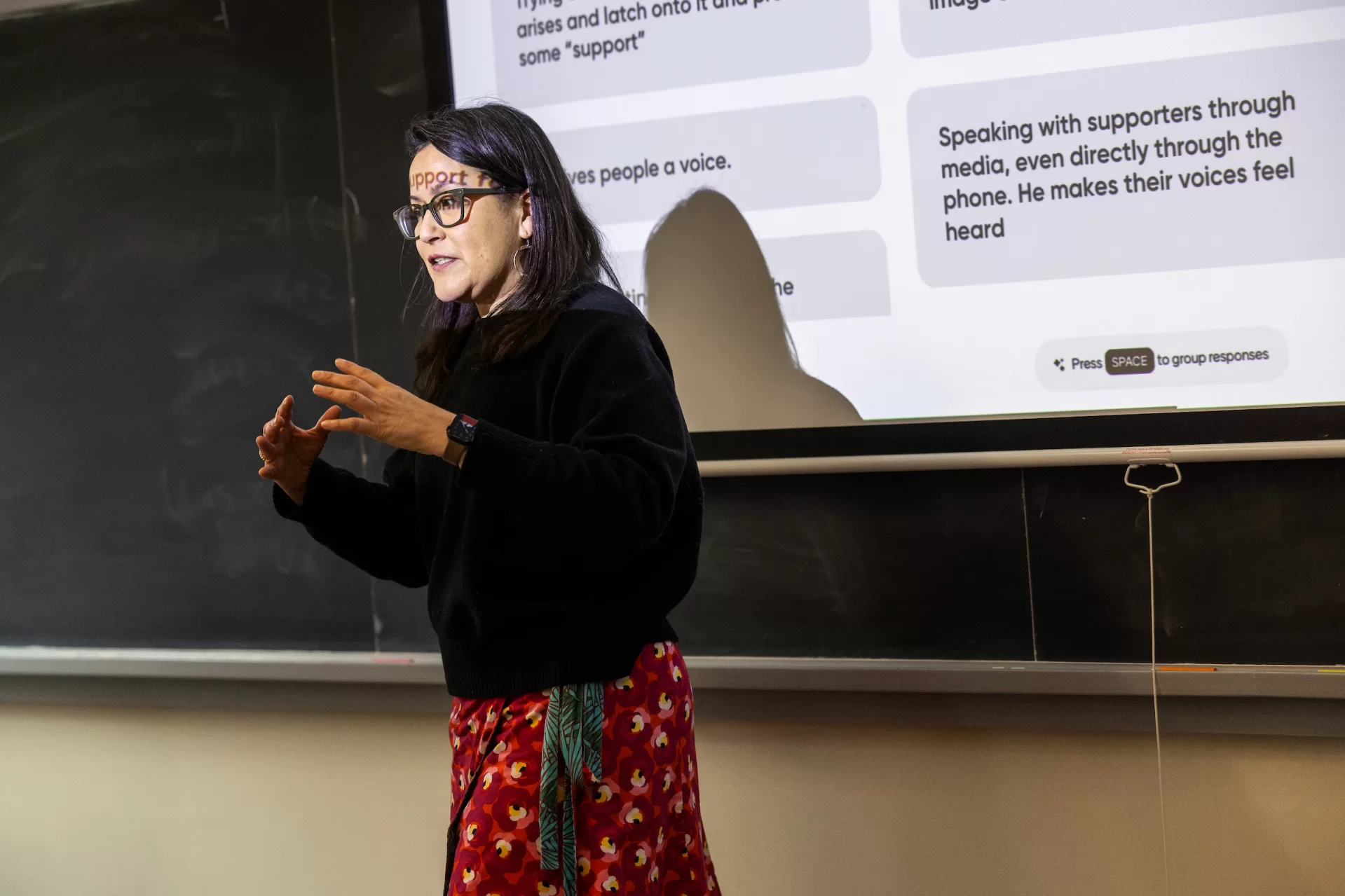
Though her courses are all taught in English, Pérez-Armendáriz encourages her students to engage with source materials in other languages, whether they access them because they speak another language or through using AI translation services. She discussed the importance of accessing sources in different languages during the Kroepsch Pedagogy Panel in September, which Pérez-Armendáriz organized and moderated around the theme of “preparing our students to be global citizens.”
In the same vein of having students who have spent time abroad share their experiences, engaging with scholarly work in different languages offers a glimpse into ideas beyond what is available in the English scholastic catalog.
“It’s not just ‘same stuff, different language,’” Pérez-Armendáriz says. “It’s ‘different stuff.’”
Lexie Jamieson ’20, a double major in politics and Spanish, embraced Pérez-Armendáriz’s enthusiasm for using multiple languages while writing her thesis analyzing perceptions of foreigners in Argentina. With Pérez-Armendáriz encouraging her as her advisor, Jamieson conducted surveys and interviews in Spanish.
When the COVID-19 pandemic began, Jamieson worried that it wasn’t possible to complete her thesis virtually. But Pérez-Armendáriz assured her that she could do it. They met online nearly every day until she was finished.
“She’s the definition of what an amazing professor is like, and she really truly cares about her students and their lives,” Jamieson says.
Pérez-Armendáriz enjoys supporting students who are interested in research and encourages them to pursue their interests, even when their ideas are unusual. When she herself was a PhD student, her advisors cautioned her against studying her primary interest of immigration, claiming that it was not a topical part of politics.
Years later, immigration is one of the most relevant and examined topics in political science.
“I have a really strong reaction to when people are like, ‘You don’t want to do that.’ It’s really negative,” Pérez-Armendáriz says. “It keeps us from knowing and learning stuff we don’t know. Maybe a student is from a place that hasn’t been represented in academia.”
Jimenez spent a summer as Pérez-Armendáriz’s research assistant through an internship funded by the Center for Purposeful Work. Even though Jimenez began the summer without the research skills needed for the work, such as coding data, Pérez-Armendáriz was confident that she could learn — and she did.
“Clarisa is just meeting you where you’re at and really wanting to make sure you like what you’re doing,” Jimenez says.
But Pérez-Armendáriz has high expectations for her students. Her courses taught Jamieson that her brain and work ethic were capable of more than she previously thought possible. Today, as a bilingual English-Spanish kindergarten teacher in Washington D.C., Jamieson views her students’ potential the same way that Pérez-Armendáriz viewed hers.
“It really influences the way I also hold those high standards and expectations of my students,” Jamieson says. “Even as five-year-olds, I’ve been very amazed at their abilities to have critical conversations about the world around them and understand.”
Pérez-Armendáriz knows personally that the path to purposeful work is often winding and full of surprises. With her unfailing belief in her students’ ability to succeed, she is equipping them for the journey.
“One thing will lead to another, and you can’t predict it,” Pérez-Armendáriz said. “Just be ready and be open and listen to your instincts.”
Faculty Featured
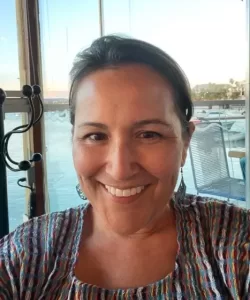
Clarisa Pérez-Armendáriz
Professor of Politics


